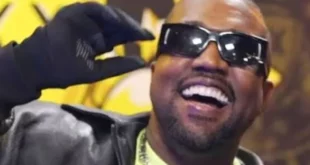Jim Goad
Takimag
November 18, 2014

Bill Cosby is the first black person that I ever remember my family liking. Then again, it’s not as if we knew any black people personally. Even though Cosby and I grew up a mere 10 miles from one another—me in a brick suburban row home and he in North Philly’s brutal Richard Allen housing projects—there were no blacks in my neighborhood. Everyone around me was either Irish or Italian, and as far as I knew, they were all Catholic. I knew that black people existed in theory, but I don’t remember ever meeting one until I was at least eight.
We owned his 1968 comedy album 200 M.P.H.—released when I was seven—and played it again and again, memorizing many of the punch lines. Despite the fact that the Philly area at the time existed in a state of virtual apartheid, the fact that he was black seemed incidental at best. He was simply this funny guy who only happened to be colored and made a hilarious, absolutely wholesome record at a time when Redd Foxx was cutting underground party albums that are still filthy even by today’s standards.
Back then I was vaguely aware that Jim Brown was a great running back and James Brown made records that only black people bought. I also knew that Martin Luther King had been shot and Cassius Clay didn’t want to go to Vietnam. Besides that, all I knew about colored people was that they lived somewhere else, were great entertainers, had rhythm and good teeth, and, according to my mom, they aged better than white people did. And I’m pretty sure that except for maybe Sammy Davis, Jr. and Louis Armstrong, Bill Cosby would have been the only Negro welcome at my house.
The rest of America didn’t seem to have much of a problem embracing Cosby, either. In 1965, he became the first black American to have a lead role in a dramatic TV series when he starred alongside Robert Culp in I Spy. Over the next three years, he won three consecutive Emmys for Outstanding Lead Actor in a Drama Series.
When the Fat Albert and the Cosby Kids cartoon became a Saturday-morning staple in 1972, all of the kids at my school loved it even though few of us had ever seen a real live breathing black person outside of the boob tube. The show endeared us to Fat Albert and Bill and Rudy and Weird Harold and Mushmouth.
 Daily Stormer The Most Censored Publication in History
Daily Stormer The Most Censored Publication in History


